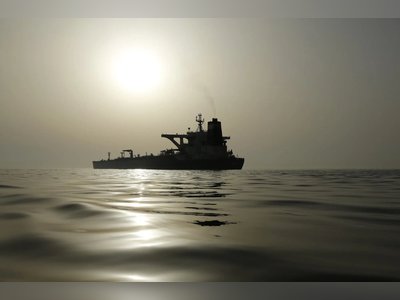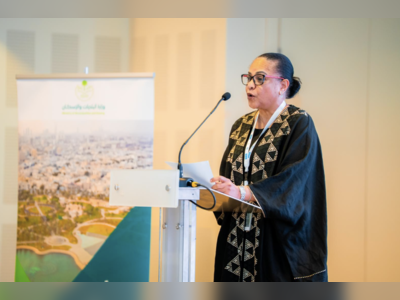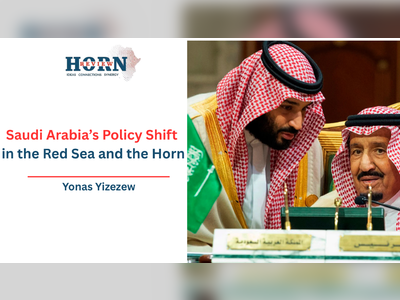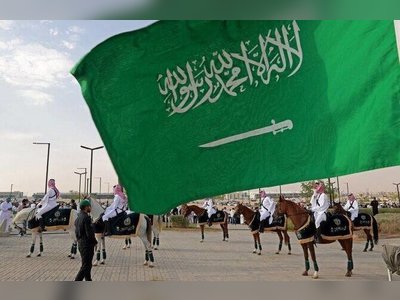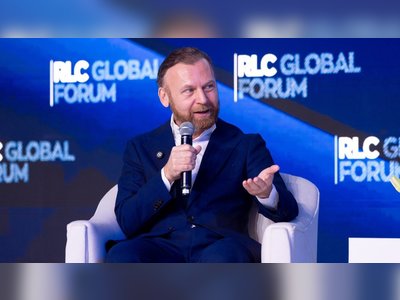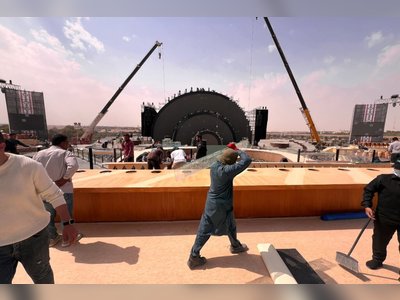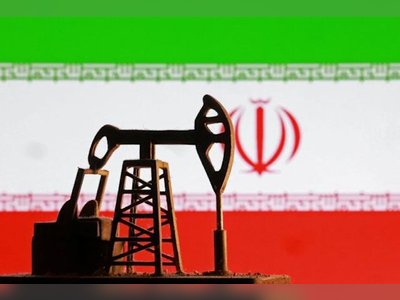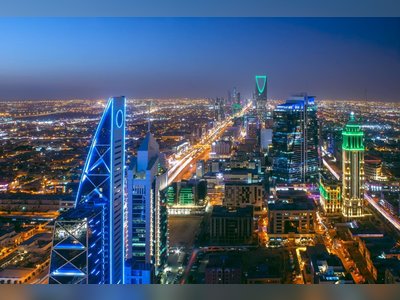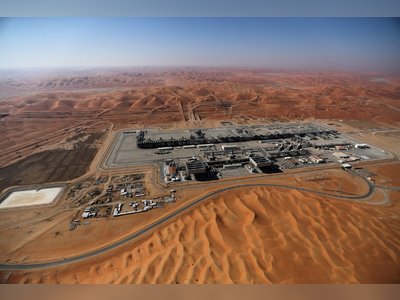
Analysis: With MBZ as president, is it time for a US-UAE reset?
The long list of powerful world leaders who attended Sheikh Khalifa bin Zayed Al Nahyan’s funeral on May 14 reinforced what Middle East observers should know – the United Arab Emirates (UAE) is an influential country with networks worldwide.
With Mohammed bin Zayed Al Nahyan (MBZ) now the UAE’s third president and the 16th ruler of Abu Dhabi, voices in the Emirati press are optimistically looking to the future.
The messages from UAE officialdom are about continuity and maintaining the UAE’s current policies.
“[MBZ] has grown up in the footsteps of Sheikh Zayed, accompanied by Sheikh Khalifa, to be a deserving successor who will lead us through the next phase,” said the chair of the Department of Government Support, Ali Rashed Al Ketbi.
“We will determinedly follow him to help the UAE achieve even greater successes.”
An assertive leader in Abu Dhabi
MBZ was already the UAE’s de facto ruler since the late Sheikh Khalifa’s stroke in 2014, so there is little basis to expect drastic changes in day-to-day governance or Emirati foreign policy.
“Now since he’s directly representing the face of the country officially, maybe he’ll resort to some favourable measures internally and externally to project a positive image of himself. This is probable,” said Ali Bakeer, an assistant professor at Qatar University’s Ibn Khaldon Center for Humanities and Social Sciences.
“But, generally speaking, we should not expect a major change internally and externally.”
Essentially, all the fundamental pillars of the UAE’s security-first approach to international affairs are likely to remain in place.
“Without [Sheikh] Khalifa in the picture and with MBZ able to signal long-term intent with his future appointment of a crown prince, his security-minded, anti-Islamist strategy could become entrenched as the UAE’s foreign policy even beyond his rule,” Ryan Bohl, a Middle East analyst at Stratfor/RANE, told Al Jazeera.
“The UAE he’s building is something of an armed business hub, using force to push back against regional trends like Islamism that might upend the economic strategy at home or threaten the country’s political model. This is quite different to the UAE of Sheikh Zayed [Sheikh Khalifa and MBZ’s father], which favoured pan-Arabism and internationalism while quietly building up at home.”
Sheikh Zayed Al Nahyan, the UAE’s founder, who died in 2004, was a defender of the Palestinian cause, and opposed the normalisation of relations with Israel. MBZ, on the other hand, sees Israel as an important partner for the UAE, in particular when it comes to opposing the perceived threats of political Islam in the region.
Hallmarks of Emirati foreign policy, such as the Abraham Accords, which formalised the UAE’s diplomatic relationship with Israel, and opposition to the Muslim Brotherhood (formally designated a terrorist organisation by the UAE in 2014) throughout the region, will likely continue shaping the UAE’s approach to the Middle East.
On a more global level, it can be expected that Abu Dhabi will maintain its efforts to keep the UAE balanced between the US, Russia, and China in an increasingly multipolar world.
Abu Dhabi has also somewhat recalibrated its foreign policy amid a period of de-escalation and rapprochements between rival powers in the Middle East. This is underscored by attempts to bring Syria back into the Arab diplomatic fold, reconciliation with Qatar and Turkey in 2021, as well as Abu Dhabi’s efforts to further engage the Iranians, beginning in 2019, despite the UAE having previously lobbied the Trump administration to impose “maximum pressure” on Tehran.
Yet the UAE under MBZ will probably continue to counter threats with the use of military force abroad, as Abu Dhabi has in the post-2011 period, albeit with the UAE’s ruler bearing in mind valuable lessons from the past 11 years.
“I think we can safely say we’ll see Emirati troops abroad in other hotspots, and while MBZ certainly has learned lessons from Yemen, Syria, and Libya, he’s not concluded that force by itself is discredited,” Bohl said.
“But he’s also learned a lot about the risk of being part of any one side or power bloc – for the UAE long term, it’s best to have as many good friends – even if that means having no great friends – as possible, as the world evolves into a multipolar environment where the UAE will be increasingly responsible for its own security.”
Implications for US foreign policy
In terms of the UAE’s partnership with the US, there are efforts by the Biden administration to use the occasion of MBZ’s ascendancy to the presidency as an opportunity to mend fences.
Vice President Kamala Harris, Secretary of State Antony Blinken, and other top US officials attending this month’s royal funeral in Abu Dhabi said much about the White House’s desires to put the bilateral relationship back on track after it grew quite frosty since Biden entered the Oval Office last year.
As the Biden administration sees it, the US’ longstanding partnership with the UAE is important to the advancement of Washington’s interests in the Middle East. The White House has grave concerns about how a continuation of tension between the US and the UAE could result in Abu Dhabi moving closer to China and Russia at the expense of Washington’s influence in the region.
“Some of the deeper cleavages that have soured US-UAE and US-Gulf relations at large no doubt still exist, but this high-profile visit marks a major pivot from Washington to gauge the UAE’s appetite and space for cooperation,” Caroline Rose, a senior analyst and head of the Power Vacuums programme at the New Lines Institute for Strategy and Policy, told Al Jazeera. “This is particularly the case with the war in Ukraine, where the US aims to garner a more united, concerted anti-Russia front in the Gulf after disagreements over oil production levels.”
But MBZ is also a known quantity to the US, and the problems that have existed between the two countries will not necessarily go away.
Fundamentally, the UAE is working to gain greater autonomy from Washington.
As geopolitical and geo-economic power becomes more diffuse around the world, this is entirely pragmatic.
A lynchpin of Emirati foreign policy over the past eight years has been to diversify allies and partners away from the US against the backdrop of Abu Dhabi becoming increasingly less confident in America as a reliable security guarantor.
Whether looking at strengthening Sino-Emirati cooperation or the UAE’s refusal to impose sanctions on Russia in response to the Ukraine war, Abu Dhabi’s growing relationships with Beijing and Moscow manifest in Emirati decisions on the international stage that upset Washington.
Although keen to continue working closely with the US across a host of portfolios, MBZ can be expected to keep putting the UAE’s own interests and agendas above all else, often putting Abu Dhabi at odds with the White House.
Thus, while the past few months and years have come with major challenges to the US-Emirati partnership, such difficulties are not on the verge of going away.
The UAE does not want to be exposed to the risks that come with firmly siding with one global power against another. This does not sit well with America’s leadership, which is focused on countering Chinese and Russian influence at a time in which Abu Dhabi continues to maintain strong ties to Beijing and Moscow.

